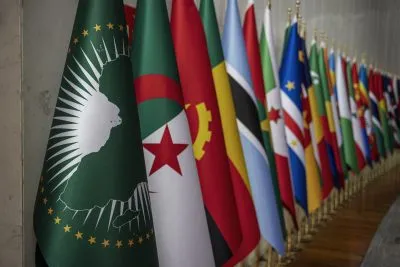South Africa became only the third non-Muslim country to issue a sukuk when its National Treasury rolled out its debut international sukuk in September. It follows sukuk issues by the UK and Hong Kong earlier. The global market for sukuk, an Islamic financial instrument, is a massive $200bn and growing. Mushtak Parker reports.
Standard Bank, Kuwait Finance House and BNP Paribas of France were the joint lead managers on the National Treasury of South Africa’s debut sukuk in the international capital markets. The $500m 5.75-year sukuk is the largest sukuk issuance from sub-Saharan Africa and only the third sukuk to be issued by a non-Islamic country. In August, Senegal became the first full sovereign to issue a CFA 100bn ($200m) leasing sukuk.
The issue, which was more than four times oversubscribed, was preceded by a major investor roadshow by the National Treasury to the UK, Qatar, Saudi Arabia, UAE and Malaysia. The South African sukuk issuance is a triumph of persistence and patience for one investment banker from Kuwait in particular. For almost a decade Emad Al Monayea’s dream is finally coming true.
As CEO and Board Director of Kuwait Finance House Investment Co – the investment banking arm of Kuwait Finance House (KFH), one of the largest Islamic banks in the world in terms of balance sheet – he has been trying to convince the National Treasury in Pretoria and some state-owned companies in South Africa of the merits of raising finance from the international and domestic markets through alternatives to the interest-based bond market.
This, he has argued, can be achieved through the issuance of sukuk, which are Islamic trust certificates equivalent to conventional bonds.
The penny finally dropped and KFH Investment was one of three investment banks, including BNP Paribas of France and Standard Bank of South Africa, that were mandated by the National Treasury in South Africa to arrange the rainbow nation’s debut sovereign sukuk issuance in the international market.
While KFH Investment, as a dedicated Islamic investment bank, is a leading arranger of sukuk, especially for sovereign issuers including in the UAE, Turkey and Qatar, BNP Paribas and Standard Bank have got fast-growing Islamic finance divisions – the former in the GCC and Malaysia, and the latter in South Africa, Nigeria, Kenya and Tanzania. The National Treasury, which is part of the South African Ministry of Finance, confirmed: “The sukuk, based on an al-Ijara (leasing) structure, was priced at a coupon rate of 3.90%, representing a spread of 180 basis points above the corresponding mid-swap (benchmark) rate.”
The success of the $500m sukuk issuance is reflected in the 5.75-year tenor and the pricing which attracted subscription orders from investor accounts totalling $2.24bn, which means the offering was 4.24 times oversubscribed.
The strong demand for the ‘rainbow’ Sukuk indicates that global capital markets remain amenable to and comfortable with South African credit risk. This is despite the fact that international credit rating agencies Standard & Poor’s recently cut South Africa’s credit rating to BBB- (BBB minus) with a stable outlook, while Fitch Ratings reduced the outlook on its BBB rating to negative from stable. Indeed, the South African sukuk was rated similarly just above investment grade.
“The decision to issue an Islamic bond,” explained the National Treasury, “has been informed by a drive to broaden the investor base and to set a benchmark for state-owned companies seeking diversified sources of funding for infrastructure development.
“The investor distribution [for this debut sukuk] represents a resounding success in building a more-diversified investor base for South Africa and further demonstrates confidence by investors in the government’s ability to maintain its sustainable macro-economic policy framework coupled with prudent fiscal management.”
Want to continue reading? Subscribe today.
You've read all your free articles for this month! Subscribe now to enjoy full access to our content.
Digital Monthly
£8.00 / month
Receive full unlimited access to our articles, opinions, podcasts and more.
Digital Yearly
£70.00 / year
Our best value offer - save £26 and gain access to all of our digital content for an entire year!
 Sign in with Google
Sign in with Google 



